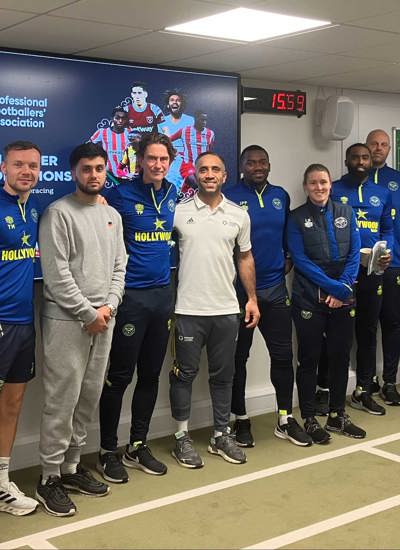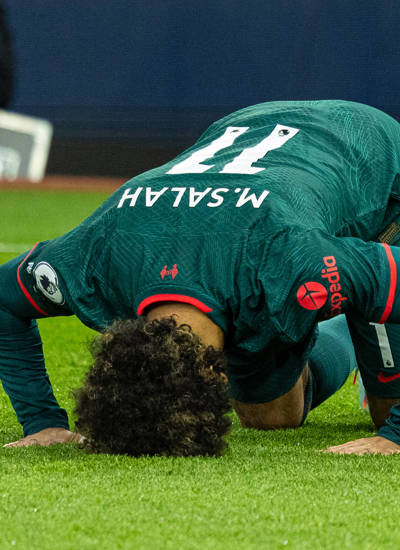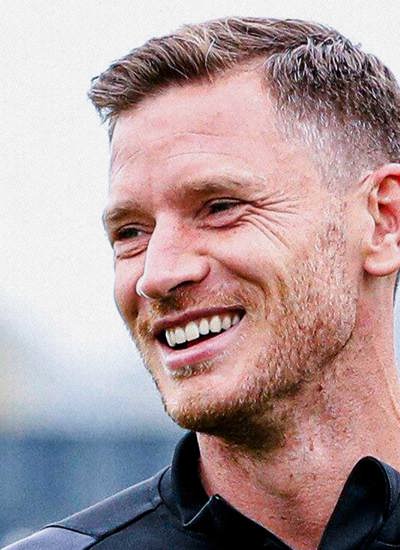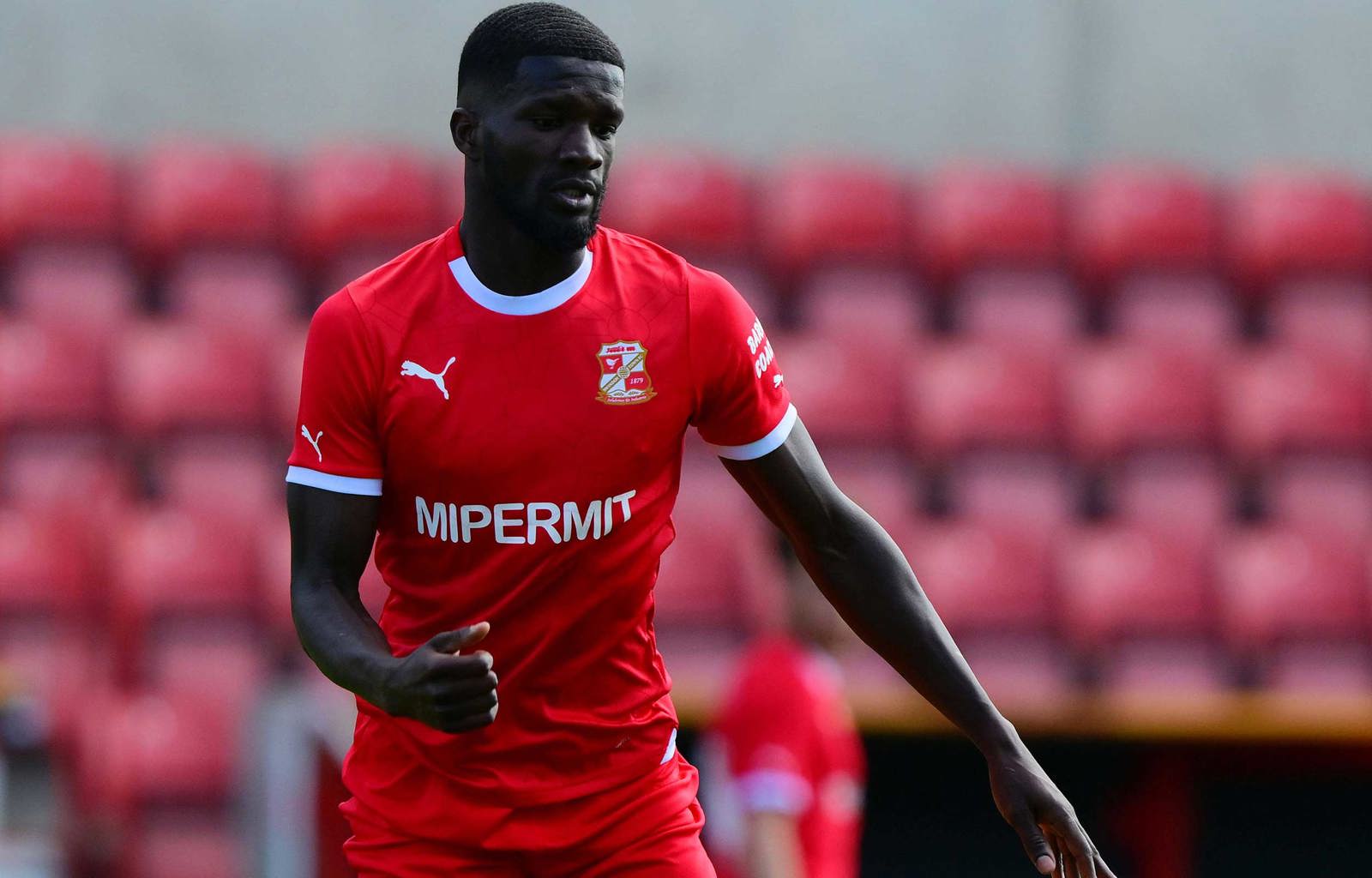
Gambian midfielder Saidou Khan spent the earlier part of his career in England’s non-league before turning professional at 26. Now at Swindon Town in League Two, Khan gives an insight into the sacrifices players make when observing Ramadan and explains what more the football industry can do to help players during the month in Muslim minority countries.
By Saidou Khan
Growing up in Gambia, I was surrounded by football and faith. Football is the main sport because there is little funding for anything else and, at six-years-old, I was playing five, six matches a day on the street. The other kids would call me ‘Kaka’ because I would always write the Brazilian’s name on the back of my shirt.
As I got a little older, I started taking part in competitive matches at Father Gough Football Academy and after our games, national team players would train there. I was in awe watching them. That’s where my football dream started: I wanted to be like them and play for the Gambian national team one day.
Like football, you are also immersed in faith from a young age in Gambia. It’s a primarily Islamic country, with a lot of mosques, so daily life typically revolves around being a Muslim. My mum sent me to an Islamic teacher about three or four times a week to study the Quran, and growing up everyone pushed me towards the Islamic faith.
My mum came to England in 2007, when she was pregnant with my sister, and my dad passed away from cancer less than a year later. My mum had to juggle working two jobs and my sister to get me to England in 2010 in search of a better life, to study and go to university. In my early 20s, I was juggling going to the University of East London, having a job in a supermarket – I worked in Lidl, selling croissants – and playing non-league. I had dreams of competing professionally and my faith helped me achieve that.
Islam teaches you that whatever is meant for you, will eventually come. My faith gave me the belief that football was written in my journey and that I would achieve my goal of playing professionally, as long as I kept working hard, doing good deeds, praying five times a day, fasting in the month of Ramadan, giving to charity, and looking after my elders. If everyone is praying for me and I'm praying for myself – and I'm working hard on top of that – then I would achieve my goal.
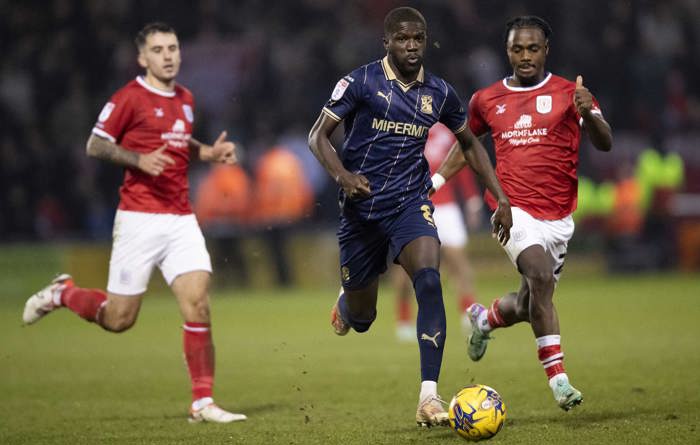
I got my chance with a club in England’s sixth tier through the university’s football programme, eventually moved to the National League (fifth tier) and then I got my break in the Football League aged 26 with Swindon Town.
Last season was my first with Swindon and they were very supportive of me observing Ramadan. A week before, they sat me down and made a plan for the month. They asked what I needed, I told them the basics, and they tailored a training programme and schedule that helped me perform around fasting and praying.
For me personally, the preparation for Ramadan is more mental than physical. I go back to the Quran for reminders and watch Mufti Menk videos on YouTube. I don't like leaving the house to go grocery shopping, so I'll bulk buy the essentials – a lot of eggs, rice, pasta – to stock up for the month.
During the month itself, I wake up early in the morning before Fajr, the time when the first of five daily prayers in Islam is performed, and have a heavy meal of carbs before going back to bed. I wake up around 12, read the Quran, pray, and then go straight to training or the game.
There is a mosque just five minutes away from me. When the fast comes you have five prayers that take about an hour and a half, but I personally don't complete all of it; I'll be there for 45 minutes before shooting back home to prepare myself for the next day. I usually break my fast for Iftar, the meal after sunset, with dates and coffee, and then I’ll typically have smoothies or pasta.
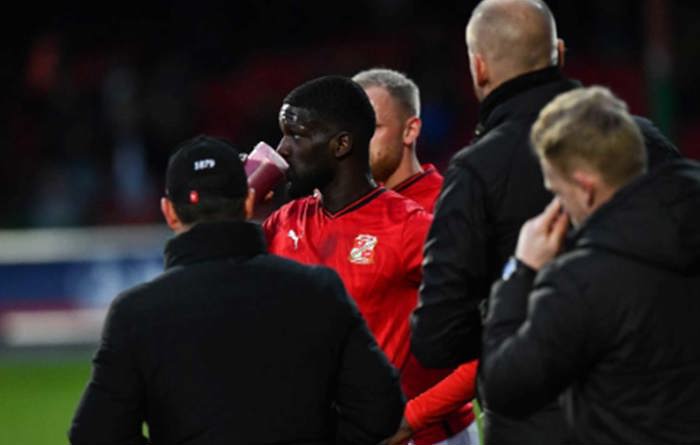
Swindon last season really looked after me during Ramadan; they allowed me to go to training later in the day, so I wasn’t going in during breakfast when I was fasting and it afforded me more time to rest. They even had the chef make meals to take home and when the team were having meals, I was able to take the time off to be in my room to read the Quran and prepare for my Iftar.
Matchday is always hard during Ramadan, regardless of whether your team looks after you or not – especially away games where you get to the hotel in the evening, have your meal, team meeting, go to bed, and then wake up very early before Fajr.
My team-mates were incredibly supportive and every single one asked me what they could do to help me observe the month of Ramadan with ease. I told them I would struggle if they were eating in front of me – even the smell is a struggle! – so they all stayed away from me when eating. Even on journeys to and from away games, they would move to the front of the coach, away from me, if snacking. It was a small gesture that went a long way.
Every player that I shared a room with for away games would ask what I needed and what time I had to be up at. If I needed to go to bed early, they would put their phones down and go to bed early as well. When I woke up in the morning to pray, they would give me space, and when they woke up in the morning to go for breakfast, they would do it quietly so that I got enough rest.
The biggest challenge during Ramadan for a footballer, in my view, is the time between your Suhur, the morning meal before the suns has come up, and kick-off on a Saturday which is usually 3pm in England. By the time the game starts, you're starving.
But there are strengths you gain as a player when observing Ramadan. This might sound funny, but I usually get less yellow cards because I’m a lot more composed on the pitch during that month. One of the benefits is the focus and mental clarity you gain from fasting. And when Ramadan comes, it's beautiful how all of a sudden my body adapts and I can perform at a high level and keep up with the tempo of the game without needing food. It’s not too dissimilar to when you do a pre-season training camp and you’re eating clean to get ready for a new campaign; it’s just a different level from that. In those four weeks my body feels the best it's been the whole year.
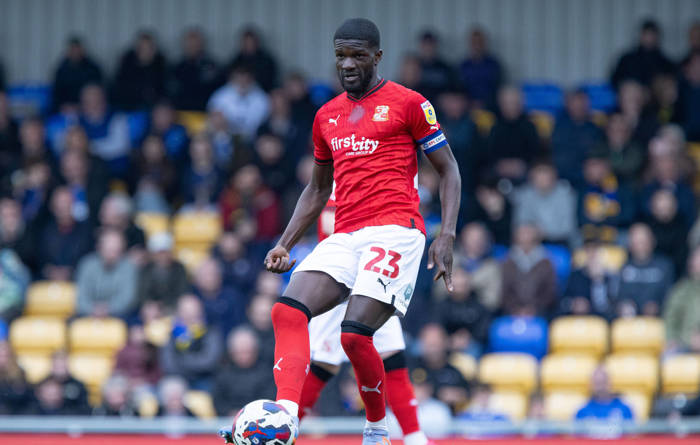
I’m proud to be observing Ramadan when playing football, but there was a time when I used to shy away from it. I didn't want my team-mates to know that I was fasting, which meant they would unintentionally eat in front of me when I was starving – making Ramadan ten times harder! On a Friday, I didn’t want to wear my Abaya, our traditional clothing in Gambia, to go to mosque after training, in case some people thought it looked funny. That’s why it’s important for Muslim players to be open about our religion.
When we’re open about Ramadan, team-mates will show an interest, ask questions, and learn how they can support you. After all, a good team-mate always has your back. It’s the same with the coaching staff – if they’re aware that you are fasting, they will tailor training to your needs because they, as coaches, want to get the best out of you. If that means coming out of training 15 minutes early to catch your breath when fasting, they will do it. Having that dialogue is so important.
I’m comfortable with talking openly about Ramadan with team-mates, but players have different personalities. Some Muslim players may not be as forward or open to talk about it. That’s why I think the PFA visiting clubs with their educational workshops on Ramadan and football is so valuable because if the union are making teams, players, and coaches aware, it takes that pressure off the players who are not able to voice it themselves.
I think it’s great that the PFA are doing these awareness sessions, but at the same time, it shouldn’t just be on the player union to drive that – clubs also need to play their part.
If a club signs a Muslim player, they should be able to make team-mates and staff aware that the main thing that will potentially affect their performance as a Muslim footballer is Ramadan. From there, they can prepare the staff and everyone else at the club for that, so that when the month comes, there is a programme on the table for how they're going to get the best out of that player.
That’s why communication is key. I’m grateful to Swindon, my team-mates, my coaches for the support during Ramadan last year – it was one the best I’ve experienced while playing football. And I know I’ll be able to count on them for that same support again this year.
